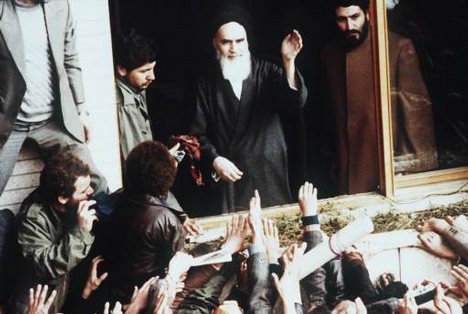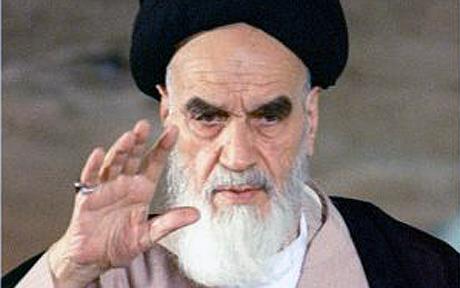In any revolution, the leadership plays a crucial role by inspiring and guiding the fight to assert and realize the revolutionary goals.
Yusuf Fernandez
In any revolution, the leadership plays a crucial role by inspiring and guiding the fight to assert and realize the revolutionary goals. The existence of a charismatic personality who leads the revolutionary masses and rallies their aspirations is very important in order to win support for the revolution.
 The importance of this charismatic leader is also important in the post-revolutionary period in order to legitimate and consolidate the new revolutionary order and build the new state. This stage is certainly more difficult and complicated than the previous one.
The importance of this charismatic leader is also important in the post-revolutionary period in order to legitimate and consolidate the new revolutionary order and build the new state. This stage is certainly more difficult and complicated than the previous one.
There is no doubt that the triumph of the Islamic Revolution in Iran and the overthrow of the Shah Reza Pahvali in February 1979 and the subsequent creation of the Islamic Republic were to a large extent the result of the guide and personality of Imam Ruhollah al Khomeini. His religious wisdom, his political vision of the necessity of a change in Iran, his firm rejection to the Shah´s regime, his exceptional personal integrity and courage in the face of dangers and threats and his communication skills turned him into the natural leader of the Iranian revolutionary movement.
Imam Khomeini led Iranian people to a complete revolution. He rejected calls to negotiate with a regime, which was seen as an example of tyranny and corruption and a puppet of some foreign powers. In 1963, after he was released from prision, he rejected any compormise with Pahlavi´s dictatorship. He had a clear goal: putting an end not only to the Shah´s regime but also to the monarchic system on the whole and the country´s submission to the United States and other Western powers.
Imam Khomeini was able to mobilize the Iranian people by using alternative tools of communication to elude the censorship imposed by the regime. As he did not have any access to Iranian media, Imam Khomeini utilised audiotapes, which were later copied and distributed all over Iran. His messages were also transcribed and photocopied. The force of this language was that it had been designed to reach out to wide parts of the society and especially the revolutionary forces.
On the other hand, the major role of Islam and the Iranian people´s strong commitment to the religious values made the Islamic revolution completely exceptional, when compared to the French, Russian or other revolutions. In other words, the role of Islam, strong willingness for change, and a wise leadership, helped the Islamic Revolution to win in 1979. Later, Imam Khomeini also promoted the creation of new political, judicial, economic and cultural institutions that served not just a tiny class of rich and powerful but also the whole of the Iranian people.
THE ARAB REVOLUIONS
 The North of Africa and the Middle East has been the scenario of popular uprisings since December 2010, when Tunisians rose in protest against Zine el-Abidine Ben Ali´s regime. In several countries long-standing dictators -Ben Ali of Tunisia, Hosni Mubarak of Egypt, Muammar Gaddafi of Libya and Abdullah Saleh of Yemen- have been toppled and they have gone to exile or have been killed or sent to prison.
The North of Africa and the Middle East has been the scenario of popular uprisings since December 2010, when Tunisians rose in protest against Zine el-Abidine Ben Ali´s regime. In several countries long-standing dictators -Ben Ali of Tunisia, Hosni Mubarak of Egypt, Muammar Gaddafi of Libya and Abdullah Saleh of Yemen- have been toppled and they have gone to exile or have been killed or sent to prison.
However, these revolutions have not had an undisputed leader or at least no single leader has emerged during their development. As a result, there is no clear course has been set for the revolutionary movements. Although the popular uprising in these countries managed to overthrow the brutal dictatorships there is a lot of confusion about the objectives of the revolution or the nature of the new state.
Some leaders claim that they want to make people´s lives easier with new economic measures or use the nationalism in an attempt to gain popular support. Some of these movements are even willing to accept the West´s interference and visit Washington or European capitals to obtain help and promise that their governments will not be “a problem” for Western interests.
These movements simply want to change a bit the existing systems or to get some power in how the government should be run. In the case of Egypt, the dictatorship has not completely dismantled. The remnants of the old regime still control wide spheres of power and try to exert their influence on the revolution and its course in order to deny people their fundamental rights.
In contrast, Imam’s leadership was totally based on the teachings of Islam and provided a clear ideological course that managed to unite all people behind him. The Imam’s commitment to Quraan principles was also absolute and unambiguous. He did not seek to mobilize the Iranian population by using nationalism or economic promises.
His goal was to liberate the Iranian people not only from the Shah´s dictatorship but also from the global imperialism led by the United States. In his speeches, the Imam repeatedly endorsed the Islamic principles of dignity and respect. With these principles as his flag, Imam Khomeini was able to set up the first Islamic State in the contemporary era.
